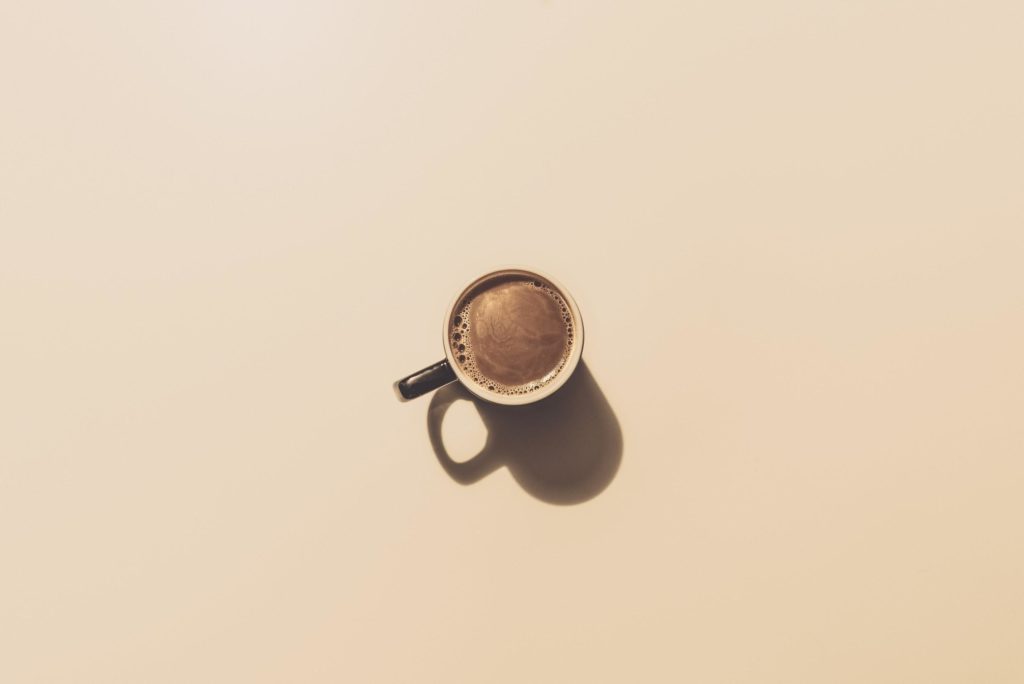Coffee is not just a beverage. It’s a tradition. It’s an essential and beloved part of the morning routine for millions of people. It’s a call for socialization.
It’s no wonder that so many people consume it on a daily basis – in fact, the National Coffee Association found that 63% of Americans drink coffee daily. At the same time, research has shown that more than 40% of Americans take prescription medication.
How are these two connected? Well, you have probably heard that caffeine can interact with medications and thus change their effect. Let’s try to see what is the evidence proving this claim and how this combination may affect us.
The nature of interactions between coffee and medications
Not only coffee, but also green tea, energy drinks, and soda beverages, all contain caffeine and can stimulate certain reactions in your body. Here are some ways caffeinated beverages and medications can react to each other:
- One study found that coffee can reduce the rates of drug absorption for up to 60%, especially when it comes to thyroid and osteoporosis medications, such as Levothyroxine and Fosamax.
- One of the most feared effects of drinking coffee alongside prescription drugs is organ damage. This is not an entirely unfounded fear, but the truth is that it depends on the medications. For example, mixing acetaminophen (Paracetamol) can lead to liver damage.
- Most pills are formulated with chemical coatings or capsules that are supposed to release substances gradually. The relative acidity of caffeine can affect the very release, thus interfering with the effectiveness of the medications.
- Caffeine is a diuretic and a stimulant. Some medications are also diuretics and stimulants. Combining these two? Well, it can lead to amplifying each other’s effects. For example, if you take a migraine pill, which naturally increases the heart rate, and coffee together, you will have an even stronger heart rate acceleration.
Can proper dosage help?

Taking prescription medication is important to maintain your health or treat some medical conditions. And we’ve seen how coffee can impact their effectiveness. However, for many people, the very thought of having to go through the day without a dose of caffeine is unbearable. What can you do in this situation?
For starters, you need to discuss this issue with your physician. Second, you can program coffee cup sizes to get the optimal amount of caffeine that will help you function without interfering with the drug absorption.
Medications which require consultations with your physician
Of course, not every drug interacts with caffeine, and not every drug requires making a doctor’s appointment. Still, 49 drugs are believed to interact with caffeine. Four of them have severe consequences. A total of 31 are moderate drug interactions while combining 14 of them with caffeine leads to mild reactions.
Here are some of the medications that you should ask your doctor about:
- Adderall
- Advil
- Aspirin
- Benadryl
- Codeine
- Ibuprofen
- Lamictal
- Oxycodone
- Tylenol
- Vitamin B12
- Xanax and other benzodiazepines
For a more comprehensive list, look here.
Specific examples of the coffee-medications interaction
All of this could look like just words on “paper” until you see some concrete examples of how the two affect each other.
- If you are taking Anagrelide and coffee together, you can experience swelling, low blood pressure, increased heart rate, and irregular heartbeat.
- If you are drinking coffee while you are taking prescribed Ciprofloxacin, you can suffer headaches, insomnia, and high blood pressure.
- Taking Enoxacin with coffee could even lead to overdose symptoms.
- Regadenoson is the drug taken for coronary conditions, which makes it very important. Caffeine can reduce its effectiveness and thus compromise your treatment.
- A drug frequently used in therapy for respiratory diseases, Theophylline also has many potential side effects. Caffeine can react with the substances in this drug and increase the risk of experiencing side effects such as nausea, tremors, vomiting, insomnia, and convulsions.
So, should you stop drinking coffee altogether?
Well, as we have mentioned above, you can, in consultation with your physician, decide to continue consuming coffee, while paying close attention to the dosage and the number of cups you are taking.
Furthermore, caffeine definitely has its benefits which shouldn’t be ignored. Here are several of them which are scientifically proven:
- It blocks the inhibitory neurotransmitter (adenosine) which leads to enhanced firing of neurons and consequently to improved energy levels and mood.
- It boosts the metabolic rate and encourages the fat-burning process.
- It increases adrenaline levels and improves physical performance.
- It decreases the risk of type 2 diabetes.
- It is rich in antioxidants, meaning that it helps your skin remain youthful and boost overall health.
The bottom line

There are many risks linked to coffee and prescription medication interaction. The consequences can be mild, but they can also be severe. That’s why it is worthwhile checking the potential side effects with your physician.
But don’t worry – coffee has many plus sides as well, and you probably won’t have to stop drinking it altogether. You may be forced to make some adaptations to your routine to maintain optimal health, but that is something that depends on your condition, the type of medications you are taking, and the amount of coffee you are normally drinking.
